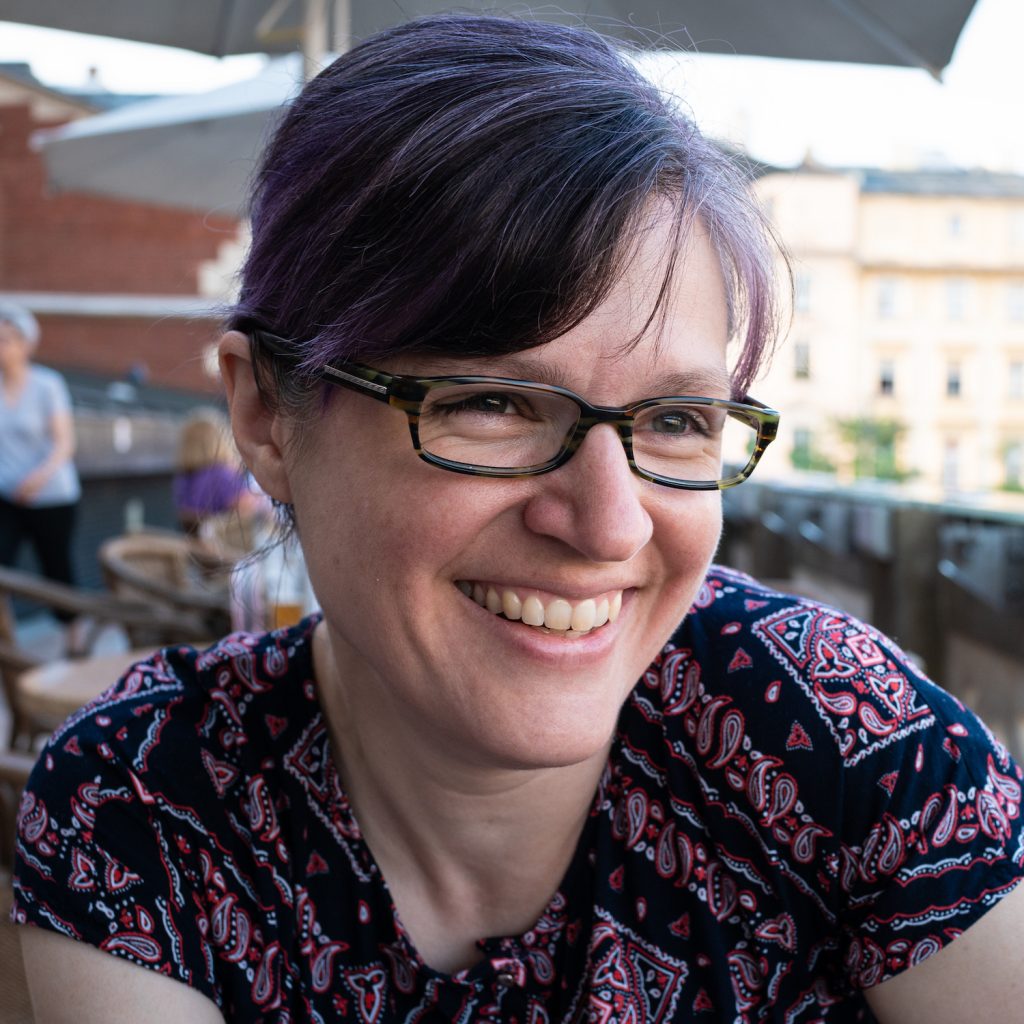
Marya Fancey ’19
DMA Organ Performance
Her degree from UNCG’s College of Visual and Performing Arts is a Doctor of Musical Arts in Organ Performance, but Marya Fancey has put her hands on just about every kind of keyboard instrument you can think of and in more than one country.
She started out on piano, but it was when she started organ lessons that she decided to make music her career. With a Bachelor and a Masters in organ, she chose CVPA to complete the trifecta and earn her DMA with Organ Professor Dr. André Lash and to take advantage of other opportunities offered by the program:
“When I met with Dr. Lash he told me I would have options to study other historical keyboard instruments — harpsichord, fortepiano, clavichord — with Dr. Andrew Willis. I had been studying historical keyboard performance through the McGill Summer Organ Academy (in Montréal) for several years, so the opportunity to continue those studies was a big plus. Additionally, UNCG’s DMA degree is structured to balance performance with academics and requires a written dissertation and cognate in another area (essentially a doctoral minor). These requirements would help me develop as a performer and a scholar.”
Marya’s passion for music and love of learning led her to add another credential — the prestigious Fulbright Scholarship. While at UNCG she participated in a year-long grant writing program sponsored by The Graduate School and was awarded a US Student Scholar grant in Historical Performance. She lived in Kraków, Poland for the 2017-2018 Academic year.
“My project was musicological research on a Polish manuscript of organ music from 1540 (called the Johannes of Lublin Tablature) and included a concert in Kraków based on the research. I collaborated with Flores Rosarum, a fantastic Krakow-based women’s vocal ensemble, for the concert. We performed three organ masses from the manuscript, which means that I played a series of short organ pieces and in between they sang sixteenth-century chants from the mass. Alternation between organ and choir was used a lot in the Catholic mass from the late Middle Ages up until 1903, but these particular Polish organ masses were last used in the seventeenth century; I think we did the first modern performance of them! I owe a big thank you to my Polish mentors, Dr. Elżbieta Witkowska-Zaremba and Dr. Marcin Szelest, for helping me with the project.”
Marya says she’d like to land at a college or university where she can have an organ studio and teach music theory and/or music history. She plans to continue research and performance and she feels that CVPA has helped prepare her:
“My experience at UNCG has been very positive. Right from the start the faculty at the School of Music were very supportive and always available when I needed help outside of class. My dissertation committee in particular has helped me with additional projects beyond my program like grant writing and conference presentations. In addition to my degree, I completed the Post-Masters Certificate in Music Theory Pedagogy and am close to receiving the Post-Baccalaureate Certificate in Historical Keyboard Performance. These extra certificates will help me be more competitive in the job market because very few positions are for organ alone. I’ve also gained confidence in my abilities — both performance and academic. I’m excited for the future!”